-
VITAL STATISTICS
-
53.9m
-
Total population (2015)
-
US$1,160
-
Gross domestic product per capita (2015)
-
6.5%
-
Economic growth for FY 2016/17 forecast*, down from 7.3 per cent the previous year. * Fiscal year ending March 31
-
US$7b
-
Approved foreign direct investment (FDI) for fiscal year ending March 31, which sees the first year-on-year drop since fiscal 2012.
-
No. 2
-
Singapore is the second-biggest investor in Myanmar, after China.
-
3.3%
-
Unemployment rate (2014), unchanged since 2012
-
SOURCES: HTTP://MYANMAR.UNFPA.ORG, WORLD BANK, MYANMAR DIRECTORATE OF INVESTMENT AND COMPANY ADMINISTRATION
WORLD FOCUS
Myanmar wakes up to a reality that's not so golden
As NLD marks 1st year in power, optimism has given way to challenge of reforming one of Asean's poorest nations
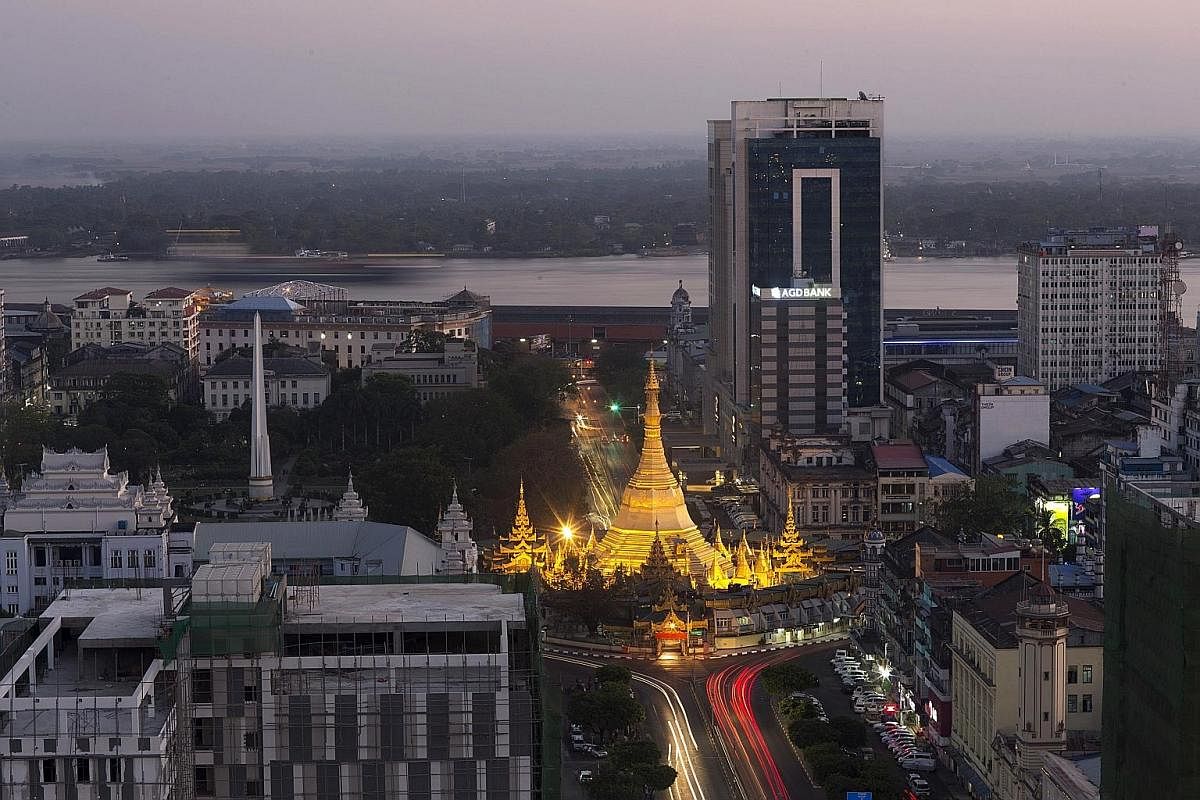
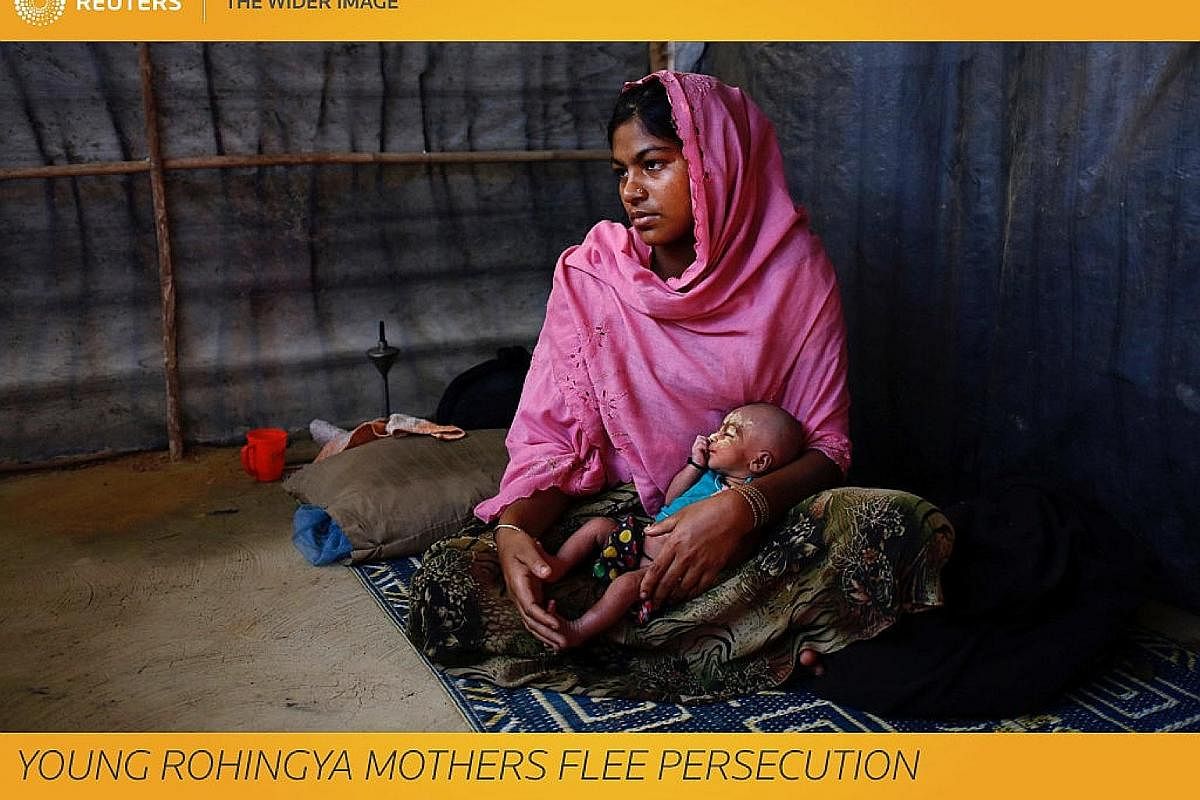
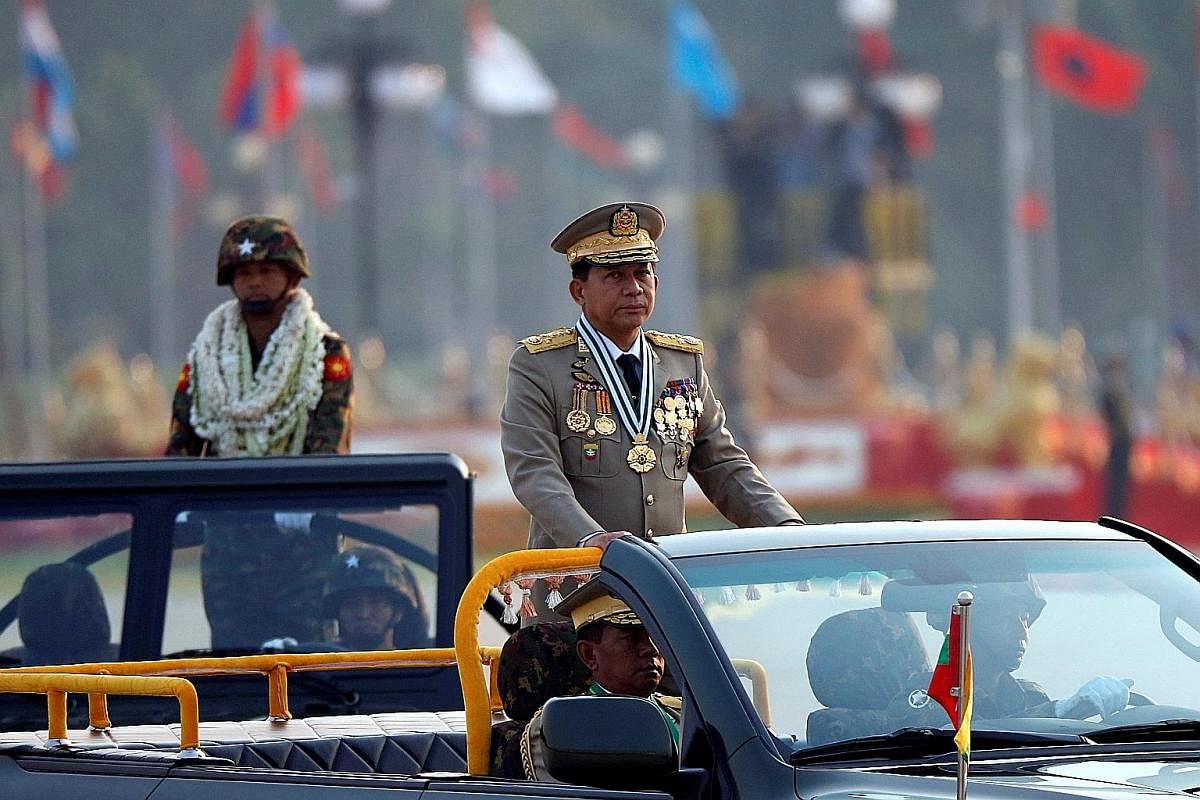
Standing on a street corner in front of campaign banners bearing his image, dentist Maung Maung urges the residents of Yangon's Ahlone township to vote for the ruling National League for Democracy (NLD) party.
Outnumbered by red- and orange-shirted party faithful, a handful of onlookers look on blankly.
Myanmar is holding by-elections for 19 seats on April 1 but interest is tepid. As the NLD marks its first anniversary in power on Thursday, the heady optimism that followed its sweep of the 2015 general election has largely given way to the grim reality of reforming one of the poorest countries in Asean.
Foreign investment is set to drop by some 30 per cent in the fiscal year ending March 31 and economic growth to slow to 6.5 per cent during the same period, according to a World Bank projection.
The government is fending off attempts by the United Nations to investigate pervasive claims of rape and killings of Rohingya Muslims by security forces in Rakhine state.
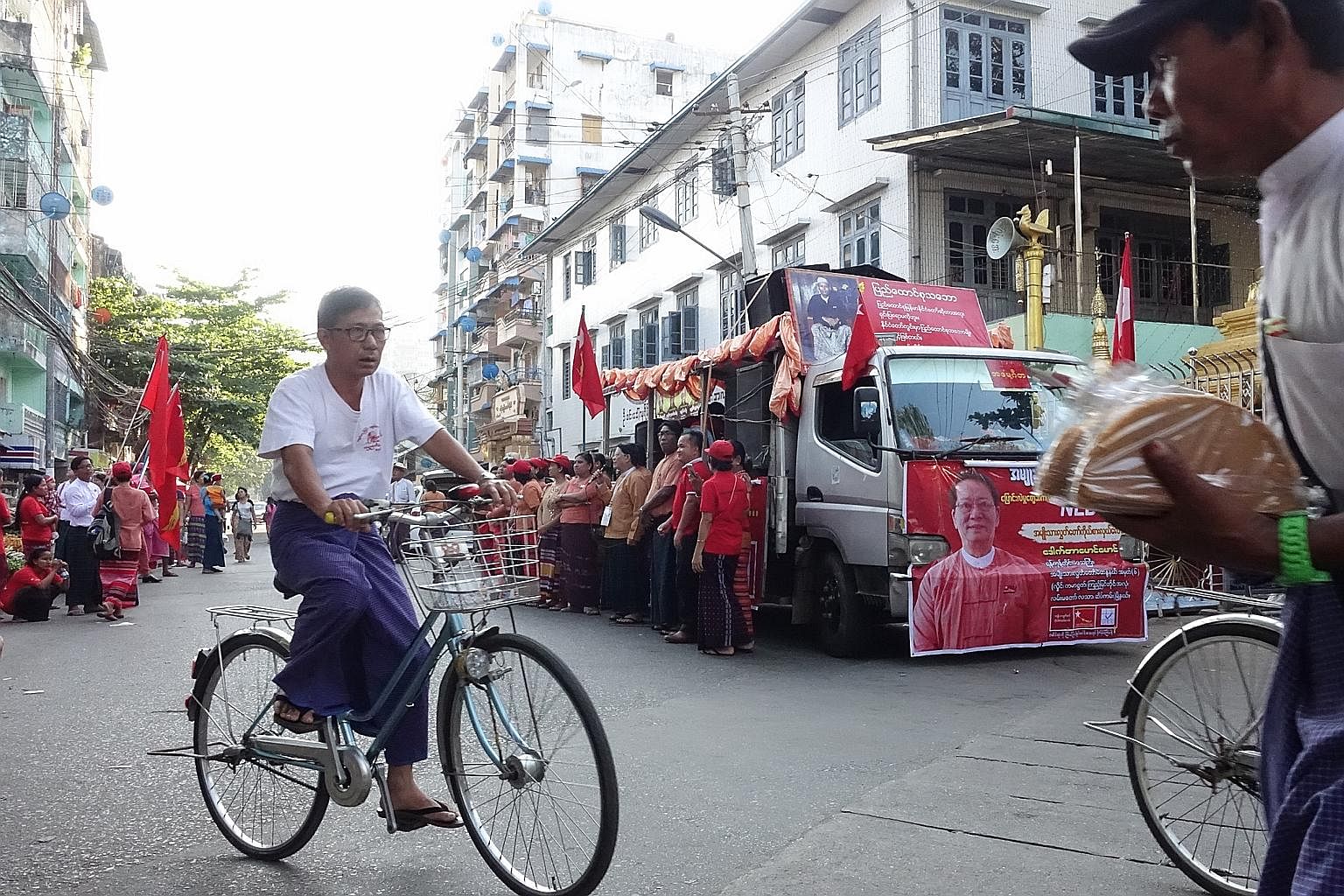
In the northern highlands, fighting between the army and armed ethnic groups has sent tens of thousands fleeing, raising questions about the sustainability of a peace conference launched with much fanfare last August.
"Reform takes time," says 18-year-old Yangon University student Win Lwin Aung, echoing the sentiment of several others interviewed by The Straits Times.
"We'll be patient. But the government has to try harder than this."
NLD leader and Nobel Peace Prize winner Aung San Suu Kyi, who spent years under house arrest, has had to walk a tightrope under a power-sharing arrangement with the military after she took over the reins of government on March 30 last year.
With the military guaranteed a quarter of parliamentary seats and controlling key security portfolios, the government has had to fit new leadership within the framework of existing institutions conditioned by some 50 years of junta rule.
There is some impatience at a civilian administration that has few tangible changes to show for its first year in power.
"There was a lot more continuity from the previous transition government than many expected," notes University College London's South Asia expert Marie Lall.
But she argues that this is an achievement too.
Rather than throwing out old initiatives and starting anew, the NLD government, for example, last month launched a national education strategic plan produced through a consultation process that began under the previous government led by former president Thein Sein.
A new investment law to be implemented from April 1 was borne out under the same circumstances.
Yet many were at the same time disappointed last year when the government outlined an economic policy. It was big on the broad strokes, like inclusive growth and cutting red tape, but short on details which have kept investors on the sidelines even though US sanctions against Myanmar have been lifted after two decades.
"The business community as a whole is concerned that the changes have not been implemented fast enough and clear enough," says Mr Aung Htun, managing director of a Yangon-based investment company.
He points out, however, that Ms Suu Kyi has a tougher job compared to former president Thein Sein.
While his government enjoyed spikes in foreign investment helped by oil and gas exploration projects, her administration has a far trickier task of diversifying a resource-dependent economy hit by weak oil and commodity prices.
This is a country full of potholes and potential, where poverty, a weak bureaucracy, simmering ethnic and religious tensions, and presence of crony capitalists are counter-balanced by abundant natural wealth, a strategic location and a young population eager to make up for the lost decades under military rule.
"We do understand that it's pretty hard for the civilian government," former political prisoner and Info Digest journal editor Ma Thida tells The Straits Times.
"But we all want to be informed.
"We want to be told what problems it is facing."
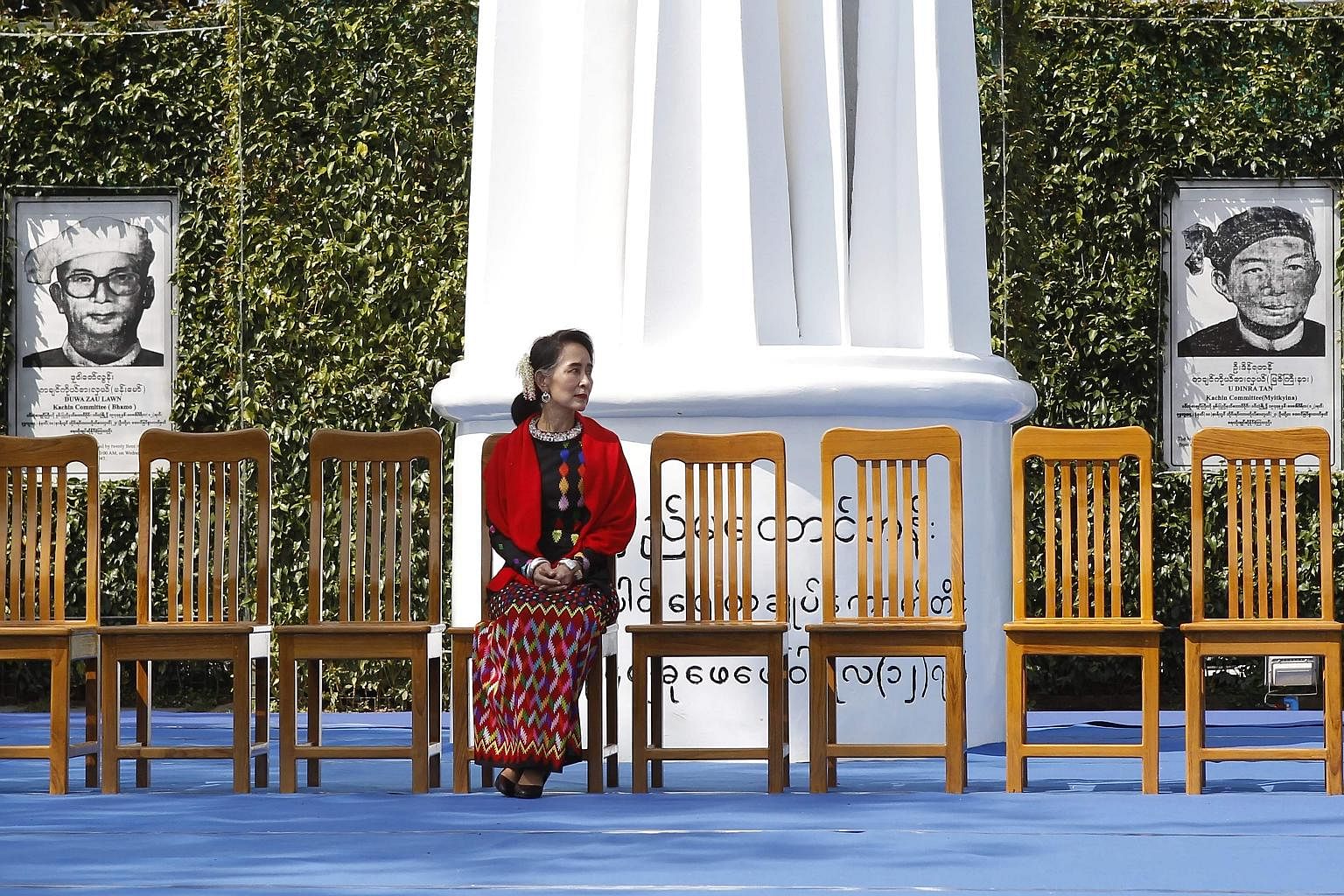
Journalists have complained about being shut out of key events, like when the government unveiled its economic policy last year.
Ms Suu Kyi has also drawn flak for over-centralising decision making.
"The reason that I have been given - by NLD members themselves - is that the people running the state and regional governments just don't have the capacity," says Professor Lall. "A lot of them are those who have paid their dues to the party by their years in prison."
This means that office holders and the party as a whole need dedicated training to get up to speed with the intricacies of governing.
Ms Suu Kyi has repeatedly emphasised national reconciliation, in the hope that achieving lasting peace with Myanmar's numerous ethnic armed groups could put the country on the right footing to move forward.
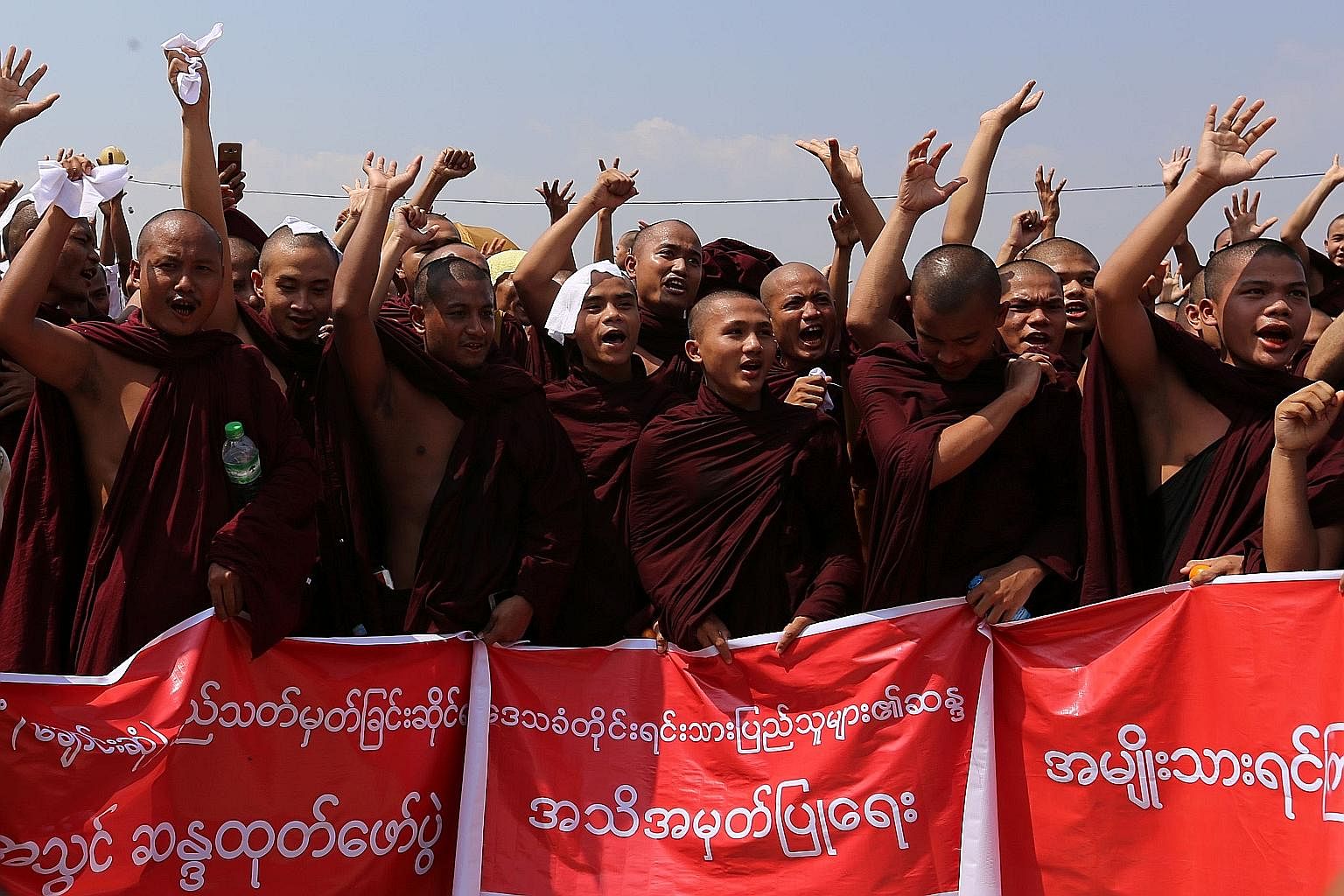
But her efforts to bring the non-signatories of a 2015 ceasefire deal to the table appear to be floundering, amid a flare-up of hostilities in Shan and Kachin states.
"I think the government is trying to do too much," says Mr Ang Htun.
"We need a government that has more depth and more delegation to be able to manage all these issues at the same time."
Some have suggested that it focuses more on selected areas like economic development, before the man on the street grows even more impatient for some tangible results from the democratic transition.
"When you dig a well, it may not fill up with water immediately," says Yangon street vendor Daw Mar Mar. "I'm worried that the people don't understand this."
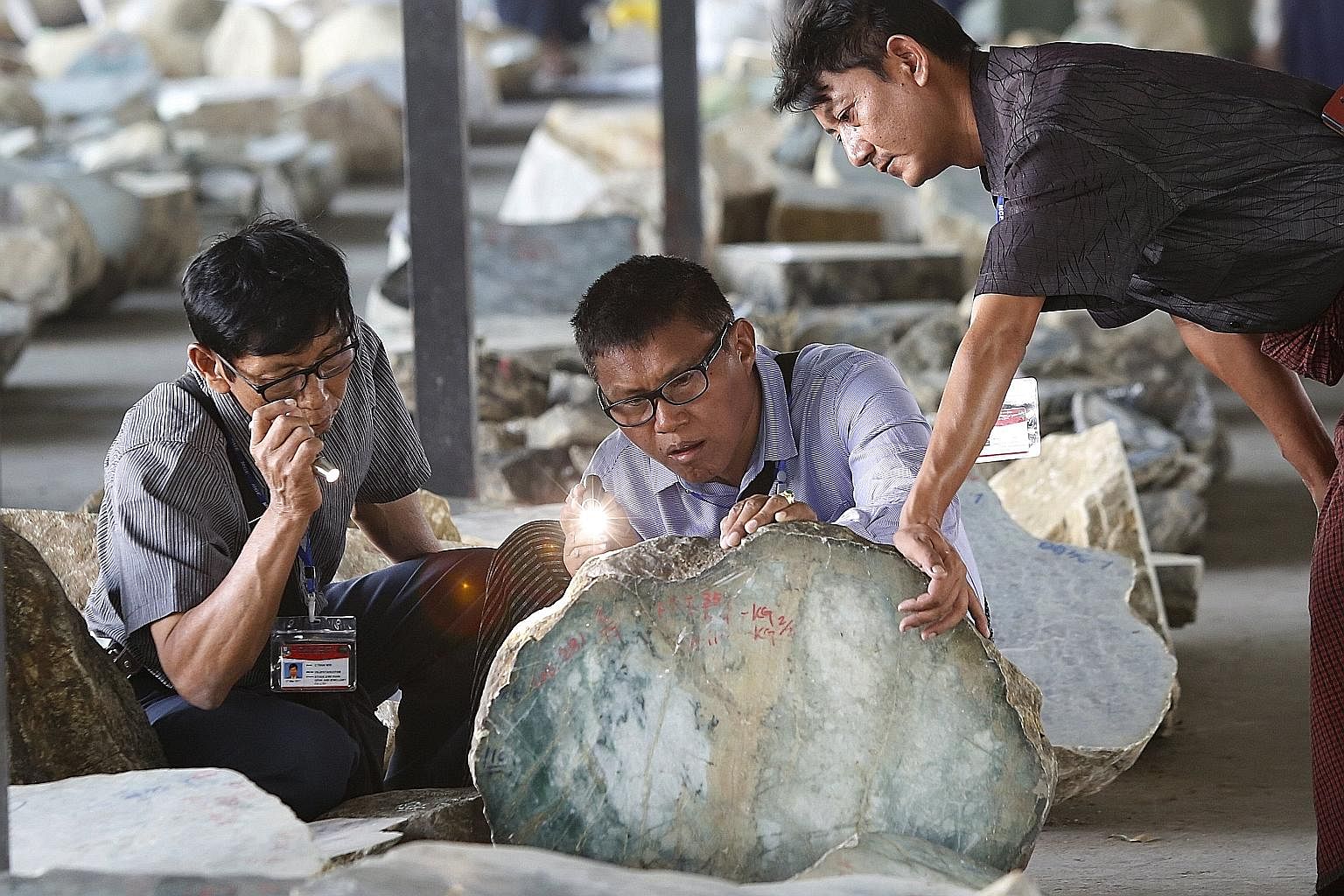
Join ST's Telegram channel and get the latest breaking news delivered to you.
A version of this article appeared in the print edition of The Straits Times on March 28, 2017, with the headline Myanmar wakes up to a reality that's not so golden. Subscribe
